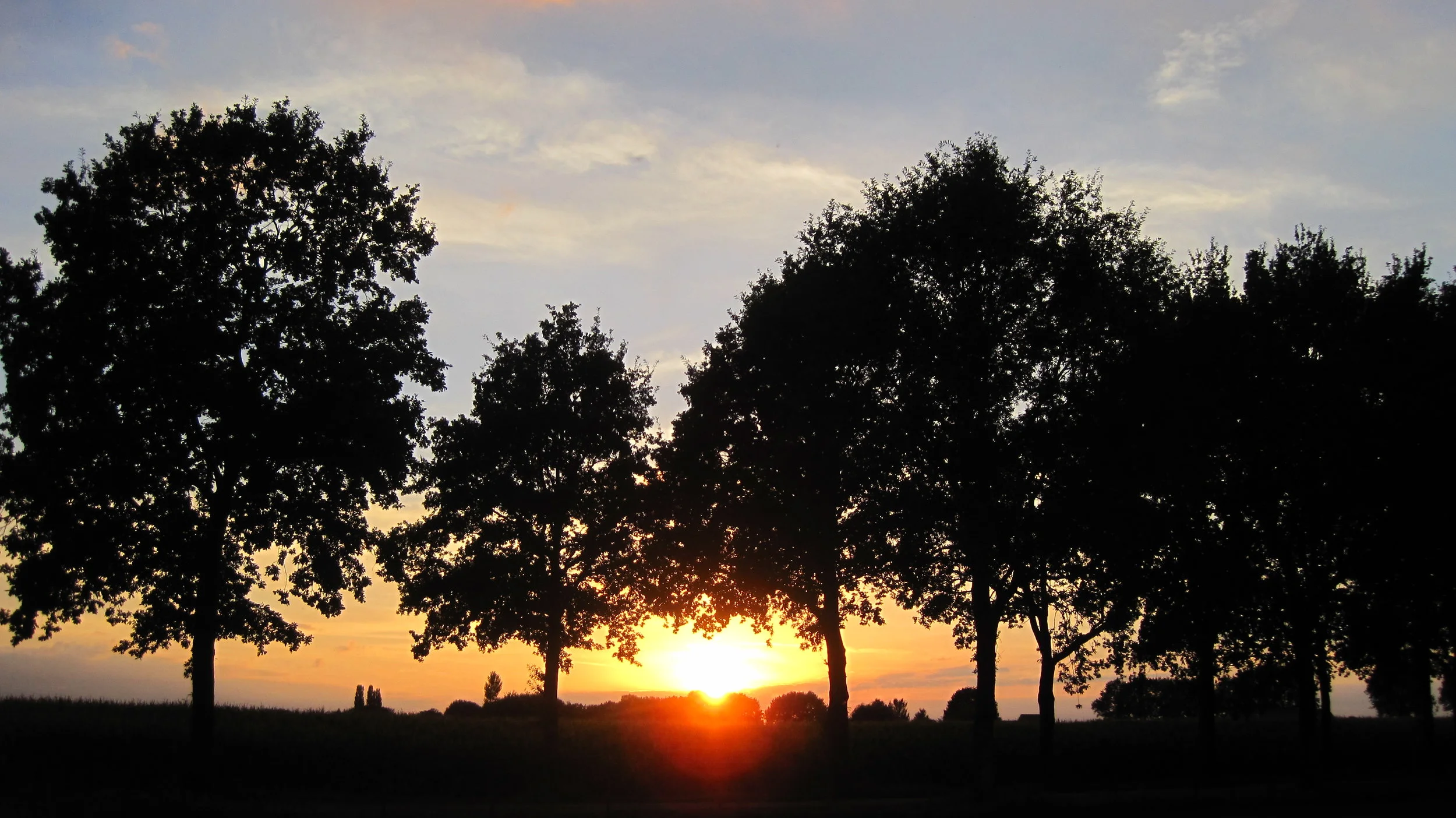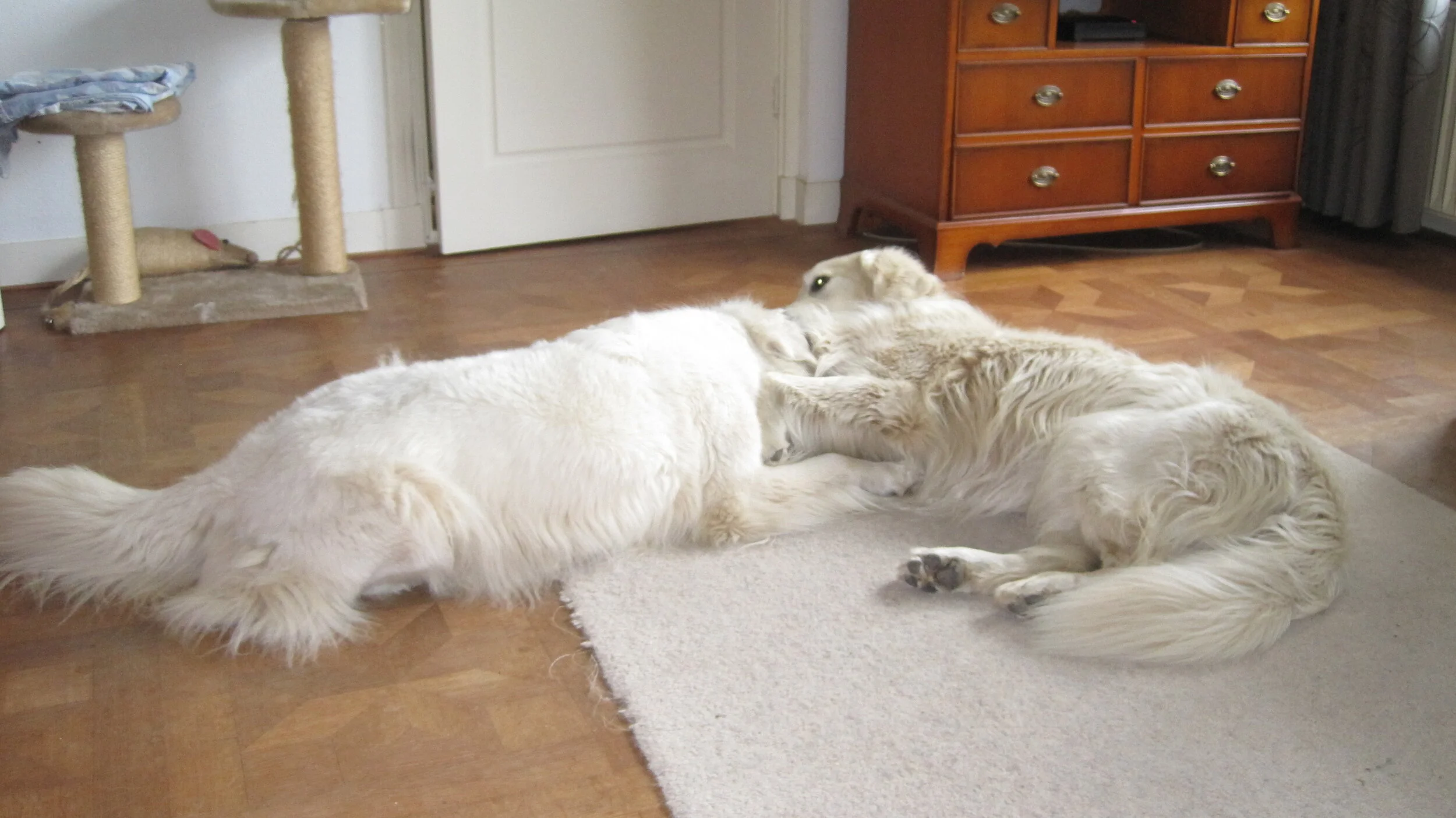It should be a Joyful affair, spring. A time of new life and Hope and promise. It is for many their favourite season.
In Drenthe (and I should imagine in any other intensively farmed area in the world), it is a decidedly bitter sweet experience..
Thin linear villages (dorpjes) cut verdant green swathes through an intensively farmed countryside that resembles a desert, particularly in the period when local farmers begin actively to work their fields. In this period, increasingly you see what little grass fields remain, turning a bright orange.as vegetation is chemically killed.
The culprit I understand is round up. After spraying, the use of the field often changes, or if it remains grass it is a monoculture sort of rye grass, without any food value to native species. Any remaining hedges or native bushes are pulled out and later burnt on an easter or new year bomfire..
Often the wind blows strongly for days on end, and the landscape really changes into a modern Sahara with strong sandstorms whipped up, ripping off the impoverished topsoil (complete with a full load of chemicals) and dumping it who knows where. A complete hazard (which can have fatal consequences) to traffic.
A big part of this problem appears to come from the abnormal methods now used to produce our meat and dairy products. The modern farm tends to be nothing like how most people would picture it. It tends to resemble a small or large industrial complex.
This forms the intensive hub in which animals are farmed, often in the most abhorrent circumstances. . For the animals to survive, vast amounts of hectares are used to grow food stuffs for them , such as maize. Far from efficient it is extremely inneficient , when you take into account the energy and material costs needed to sustain this model of farming.
And that is not to take into account factors such as the huge amount of land that is wasted on non essential crops such as sugar beet, or for example tobacco , elsewhere in the world.
Our agricultural areas are rapidly becoming massive dead zones, with wildlife left to find its survival needs along bare road verges. Entire ecosystems are collapsing here in Holland, and as Holland is a vital link for many international migrations, this is a subject which should transcend borders. It is a European problem. and It is a World problem.
A dairy farmer here once told me he felt he had a moral duty to feed a starving world. I would question why he thinks dairy farming helps that and why a farmer based in Holland should feel it necessary to do that. in the first place.
What about providing adequetly for the needs of your local community, and taking seriously your role as a guardian of that bit of land that you work, and all the different forms of life it should be sustaining?
For a small country , Holland is a big player in the Agricultural industry.It has the second biggest export industry (after America) and i believe I once read it produces more meat per head of population than any other country. It has evolved its agriculrural Industry into a super effeicient super slick machine.
The powerful agricultural lobby here ensures that it is exporting its products, methods and technologies around the world. That these also happen to be anti life does not matter at all to this juggernaut of an industry.
I could go on in detail , but its too much for now. Suffice to say that taxpayer money is being used by individual countries and the EU in particular , to come up with misguided policies and subsidies that are proving to be anti- life.
Here I am not just talking about the natural world , but human life, which is also being threatened by agricultural policies that emphasise intensive, chemical bombed farming methods..
It seems that the risks to human populations in sorrounding areas, could be being conveniently ignored by our politicians and the industry itself. According to a Zembla documentary recently aired titled ”Bollengif in babyluiers”’ 1 in 5 dutch homes could be in danger from the effects of chemical poisons.being used in its agricultural industry
If people are not concerned enough by plummeting biodiversity levels, then perhaps that is a reason to think again..
Until then people living in agricultural communities will continue to be put and risk and every year spring will become noticeably more silent.
.



